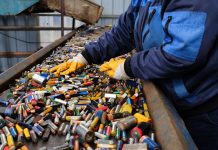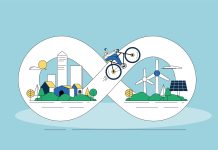President of the Sustainable Development Observatory of the European Economic and Social Committee, Peter Schmidt tells us what we need to know about the European Green Deal amid COVID-19
In the midst of a global COVID-19 pandemic, we are witnessing the worst economic and social collapse for decades, and it hasn’t even played its full course. For many months now, we have been discussing and designing the appropriate measures to save the failing economies and inject new stimuli into the system, thinking that if we only adjust a few parameters, we will be able to grow and prosper again. This is not rebuilding the economy, but putting it on a respirator, keeping it alive. However, just as we cannot defeat the new coronavirus without fully understanding the ways it attacks our health systems; we won’t be able to revive our economy without a clear understanding of the underlying causes of its malfunction. To fully reset our systems; rebuild and recover, we should bounce forward on a pathway towards a sustainable future.
Economy
After COVID-19 hit, I was startled to see the mobilisation of some players to protect the economy, by, for instance, attempting to remove recent achievements of European environmental policy and the ease with which these actors would disconnect the current emergency with the underlying climate and environmental crisis and the expanding inequalities. Yet, these are the defining challenges of our time. This is the battle of our generation. These problems are not disconnected with the way the pandemic has affected our economy; they are inherently linked with it. Climate change and environmental degradation can exacerbate the risks of similar zoonotic viruses striking more often in the future. In the meantime, the resilience of our natural systems is decreasing with raging biodiversity loss. Climate change threatens us all, but, as with the pandemic, it has the most damaging effect on the most vulnerable and marginalised people. COVID-19 has exposed so many inequalities in our society. Has it made us go backwards on our commitment to the Sustainable Development Goals (SDGs) or has it demonstrated how badly we are actually doing on meeting them?
The proposal of President Ursula von der Leyen of the European Commission is to ensure sustainable, inclusive and fair recovery with Europe’s recovery plan. Reaffirming the priorities of the European Green Deal was a much-needed symbol of European solidarity and a clear demonstration of standing behind our international commitments. It is disheartening to hear some of the European leaders react by saying, “we need economic reforms to demonstrate to our citizens we are not just throwing a lifeline to a drowning person”. I can only wonder why in 2020 we still think austerity is a good solution. One must appreciate that the recent European Council broke with this thinking, but I doubt that the direction chosen will lead to a wellbeing economy. Unfortunately, national egoism is the driver in negotiations in many cases and may remain so in the future, when implementing the Just Transition Fund or other social and climate projects.
For the EESC it is quite clear, we cannot simply restore what existed in the past: we need to restructure and improve it. Restructuring and improvement will have to be based on the principles underpinning all our work: protecting human and social rights, democratic values and the rule of law, unlocking the full potential of the Single Market, achieving the SDGs, creating a circular economy and achieving climate neutrality in the EU by 2050 at the latest.
I would argue that what our citizens want is not more austerity. They expect the decision-makers to design a new economy that works for them and for the planet, which sustains us all. Prosperity today will mean nothing if it comes at the cost of survival tomorrow. We may have thought otherwise before COVID-19, but (today) we can no longer hide our heads in the sand. The time for true leadership has come. We must design a wellbeing economy that combines the idea of prosperity with the possibility of social progress within planetary boundaries.
We must continue supporting new business models that begin to transform linear processes of consumption and production. We should reinvent the world of work by openly discussing issues such as the adoption of a right to work or “job guarantee”, universal basic income, universal basic services and a maximum income. We must gear investment towards communities, public spaces, healthcare, education, social services, zero-carbon housing and infrastructure and the protection and restoration of biodiversity should be at the heart of the recovery measures. We must take a global leadership role and stand firmly on our commitments to the Paris Agreement and the SDGs. The task we are facing is not merely about navigating a health or economic crisis. It is about the future of Europe and its capacity to face the challenges of the next decades.











